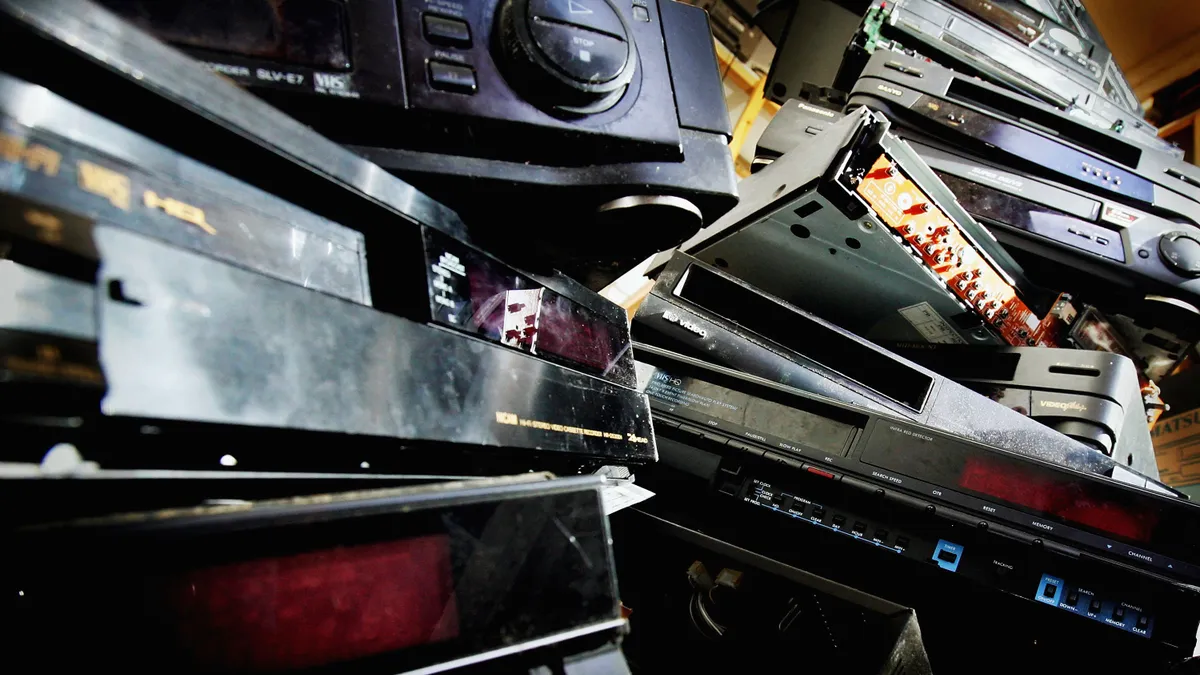State right-to-repair bills and independent electronics refurbishers could benefit from a new Federal Trade Commission report, which calls out device manufacturers for unfairly restricting repairs.
The new FTC report describes restrictions manufacturers put in place to prevent consumers or third parties from repairing their devices. Though some manufacturers say these restrictions are necessary to protect intellectual property and prevent tampering, the FTC report says there is “scant evidence to support manufacturers’ justifications for repair restrictions.”
Advocates say the FTC’s findings could be a catalyst for some of the 25 right-to-repair bills making their way through state legislatures, helping them become law in the near future. They also see the FTC report as a win for independent electronics refurbishers.
Meanwhile, a new law in Arkansas aims to harmonize the state’s regional electronics recycling programs and require state-run entities to participate in one new system. Bill supporters also see the law as a way to better connect refurbished laptops and other devices to low-income students.
FTC report aligns with state right-to-repair advocates
The FTC says devices are becoming harder to repair. Manufacturers’ restrictions, such as making diagnostic software unavailable, limiting spare part availability or using adhesives that make parts difficult or dangerous to replace, can leave consumers with few options for fixing broken devices without specialized tools or parts or manuals that are hard to find. These restrictions disproportionately affect low-income consumers who can’t always afford to replace their device when it breaks, according to the report.
The FTC also acknowledged it can do more to enforce the Magnuson-Moss Warranty Act, a consumer protection law that spells out how warranties may be used when marketing products to consumers. The report describes complaints from trade associations, consumers and advocates about companies that violate the act, including automobile dealerships that illegally void automobile warranties if they find a specialty part has been installed on the car. After publishing the report, the FTC tweeted, “If you’re told that your warranty was voided or that it will be voided because of independent repair, we want to hear about it.”
Kyle Wiens, CEO of repair company iFixit, said right-to-repair advocates have been making similar points for years. He sees the FTC acknowledging these issues as a significant step toward removing repair barriers, and he views the report as good news for some of the states that are trying to pass right-to-repair legislation this year.
“The FTC said in the report that they are interested in advising legislators, so we see this as a catalyst for getting these bills passed,” Wiens said.
Some states are looking more favorably on the concept than others, however. Massachusetts voters last year approved an expansion to the state’s automobile right-to-repair law. This year, state legislators reintroduced a right-to-repair bill that would require manufacturers of electronic products like phones and laptops to allow independent repair facilities the the same access to diagnostic and repair tools and parts as authorized repair providers. This year’s version has the support of at least 69 state lawmakers.
Meanwhile, Colorado’s right-to-repair bill was postponed indefinitely in March after lawmakers said the bill was too broad.
In California and Hawaii, current right-to-repair bills focus mainly on medical equipment. Arkansas has its own medical equipment bill in the legislature this year, along with another bill that would apply to farm equipment. Farmers in that state and others have long pressed companies to give them access to technology needed to repair their tractors and other equipment. Farmers told the Arkansas Democrat-Gazette they’re used to fixing their own equipment, and it can be too time-consuming to fix modern tractors that currently require a service call to their local dealership.
Yet equipment manufacturers and groups like the Association of Equipment Manufacturers maintain that such repair access is overly broad, and “it would risk the safety, durability and environmental sustainability of equipment,” the association said in a policy statement.
Wiens also points to the FTC report’s significance as a possible economic driver for independent refurbishing companies, which could expand their businesses if given access to tools and services that manufacturers once barred from them.
“If service manuals and parts could be available to repair shops, to consumers and to recyclers and refurbishers, that would unlock a huge economic value,” he said.
The FTC report notes the pandemic has made repair challenges even more difficult, for example by creating a “drastic shortage” of laptops for students learning from home. “Reducing barriers to repair may permit older laptops to be refurbished more easily, thereby expanding the supply of available laptops,” the report said.
Updating Arkansas’ e-waste system
Providing refurbished electronics to schools and low-income families was one of the motivations behind a new electronics law in Arkansas, which advocates said could help keep electronics out of landfills by standardizing how e-waste is handled in the state.
Gov. Asa Hutchinson signed the bill, SB585, into law April 26. The Senate approved the bill unanimously, and the bill passed the House by a wide margin.
Craig Douglass, executive director of the state’s Regional Recycling & Waste Reduction District, said the bill also aims to better connect used electronics with end markets. Local schools are a big part of that market.
“There is real value in refurbishing and remarketing, particularly for schools. Arkansas is a small rural state, and depending on where you live, the district has to provide the student with hardware,” he said.
Arkansas’ electronic scrap stream is growing, and the state is currently ill-equipped to handle it, Douglass said. Arkansas has 19 different solid waste management districts; each handles end-of-life electronics differently, and each of those programs is facing a funding shortage because Arkansas’ Department of Environmental Quality stopped offering an annual total of $2.5 million in operations grants several years ago. The grants were funded by a state tip fee surcharge at permitted landfills, Douglass said.
The new law harmonizes the 19 diverse programs into one state system, which will be run by a public contract administrator selected by DEQ sometime this summer. The administrator will contract with recyclers and refurbishers in the state, who will collect electronics for the program and pay a fraction of their revenue per pound to the program to handle operations costs, according to the bill.
A major piece of the law is requiring state-run entities — the government, state universities, state hospitals and others — to recycle their electronics through the program. Douglass said this assures recyclers and refurbishers that there is a reliable stream of “high-value, high volume” electronics. Private companies and members of the public also have the option to participate in the program, likely through public take-back events, he said.
The bill spells out which types of electronics it targets for recycling, which Douglass notes are mostly items that are more likely to have end markets. The list includes laptops, hard drives, televisions, video game consoles and monitors, but it also allows for other harder-to-recycle electronics, such as older televisions with cathode-ray tubes, which can be difficult to recycle because of their lead content.
The bill does not require manufacturers of electronics to pay for recycling costs like some other state electronics recycling programs do, and it does not require recyclers to collect a certain volume or weight of electronics each year.
“The reason we don’t have a [volume] requirement is because we just don’t know how much is out there,” Douglass said. DEQ’s most recent estimate was from 2017, when it reported about 8,555 tons of electronics were recycled.



















